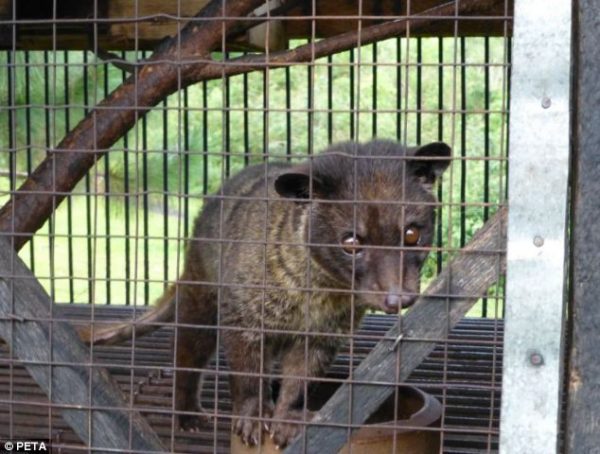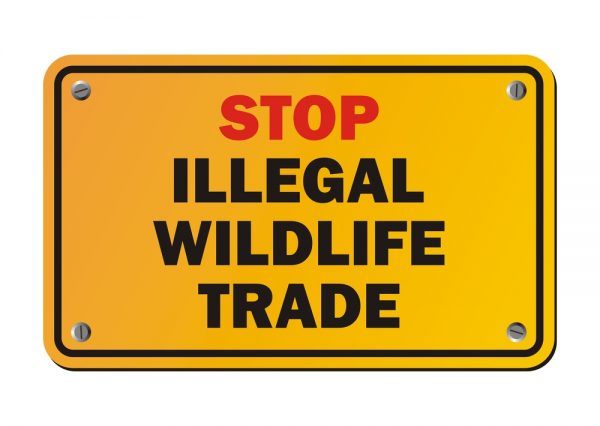
China PlaceD Temporary Ban on Wildlife Trade
China placed a temporary ban of wildlife trade due to the coronavirus outbreak. The wildlife trade ban applies to markets, supermarkets, restaurants and online sellers. Chinese agricultural ministry and forestry leaders announced any places breeding wildlife must be isolated, and the transportation of wildlife banned.
Traced to a seafood market in Wuhan, the coronavirus is infecting thousands of people globally. Known for participating in the illegal wildlife trade, The Huanan food market is the largest of its kind in central China. These “wet markets” are where most people in this area buy their food. But like many other markets, this market also sold live wild animals. Some animals considered culinary delicacies or used as ancient traditional medicine.
This ancient wildlife trade continued despite the fact it caused a deadly coronavirus outbreak nearly twenty years ago. The SARS (severe acute respiratory syndrome) outbreak in 2002-2003 was the first global pandemic of the 21st century. Scientists found SARS-like coronaviruses in animals including masked palm civets and a racoon dog in the early cases linked to wildlife markets and restaurants in Guangdong.
Ancient Trade Cause of SARS Epidemic

Medical researchers determined that the 2002 SARS outbreak originated in bats and spread to humans via palm civets sold in Chinese food markets. Research shows the SARS-type coronaviruses resides naturally in bats. The virus can easily jump to other hosts, mutating along the way, in markets where humans interact.
The Chinese government responded to SARS by placing a temporary ban on the hunting, sale, transportation and export of all wild animals in southern China. They quarantined or killed civets raised for human consumption in numerous farms across the area.
At the Royal Society’s international conference on “Lessons from SARS” in 2004, attendees were warned the wildlife trade is a threat to human health. The illegal trade is also a major cause of biodiversity decline in China and South-East Asia.
Coronavirus 2019-nCoV Caused by Wildlife Trade
Yet, in 2020, a market selling a variety of live animals is linked to another novel zoonotic coronavirus.
If the SARS ban were permanent, the current crisis might have been avoided according to Peter Knights, founder of WildAid. “Surely it’s time for an advanced country like China to reassess the viability of a tiny industry that risks global pandemic, national image, animal cruelty and conservation concerns,” he said.
Three Things Contributing to the Perfect Conditions for Pandemics
The perfect conditions for the start of a human pandemic from previously unknown zoonotic pathogens is the result of three things.
- The shift from subsistence hunting of wildlife to its sale into an international trade network driven by demand in China.
- The extensive cross-exposure within this wildlife trade of species and species populations, which would not otherwise mix or be in contact in the wild. These stressed and immunocompromised wild animals are in close proximity to domestic and farmed animals.
- Disease is not just from wet markets. Wildlife populations are declining from poaching and hunting. Viral outbreaks cause mass culling of domestic animals. This killing of domestic animals increases the cost of basic animal protein, hurting the poor.
Wild animals, thought of as status symbols, are more expensive to buy than domestic livestock. Perpetuating the wildlife trade demand is a dietary choice and not driven by low-income. Therefore, a permanent ban would not create hardships on the poor.
Wildlife trade Ban Should be Permanent

The mix and exchange of viral components between species at live animal markets is a major source of new viruses. These zoonotic viruses transmit from animals to humans, such as avian flu and SARS. These viruses can then mutate and transmit between humans, creating the conditions for a global pandemic.
All governments should increase efforts to fight domestic and international trafficking of wild animals. Governments should also step up efforts to change dangerous wildlife consumption behavior. Beijing is moving in that direction with a state-monitored social media hashtag message “support a ban on wild meat markets”. This message from the government People’s Daily is a trending topics in Weibo. Other trending messages are “the source of the new coronavirus is wild animals,” and “Reject wild meat, for your and my health.”
The solution is a united action to remove the demand and supply chains to these wildlife markets and farms. The call to close wildlife markets across China since the SARS outbreak is increasing in urgency by experts in China and in organisations worldwide.
Christian Walzer, chief global veterinarian at the Wildlife Conservation Society, called the ban an “important first step” but said the ban needs to be permanent. Walzer said, “The pattern will keep repeating itself until we ban, not only in China, but other countries, the sale of wildlife, specifically for food and in food markets.”
There are many reasons to ban the wildlife trade for the sake of the animals. Perhaps humans will do the right thing to save themselves and in turn will be the beginning of the end of cruelty for wildlife.